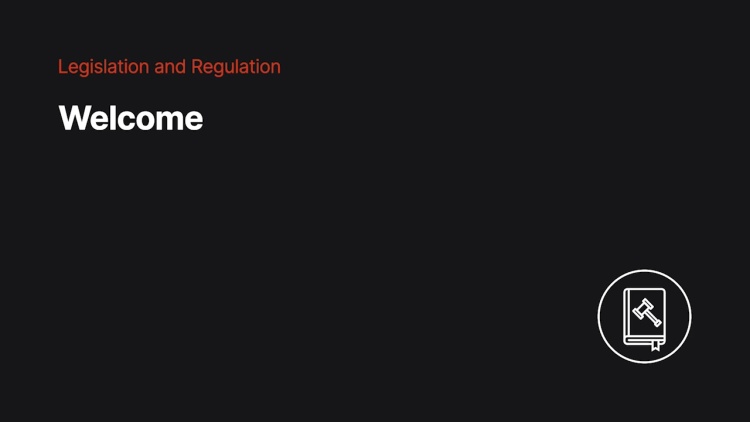Welcome
A survey of legislative processes, agency rule-making and adjudication, canons of statutory interpretation, and judicial review of statutes and rules.
Transcript
Welcome to Legislation and Regulation. This course is divided into four chapters. Designed for 2Ls and 3Ls, the course examines the constitutional, legislative, and political processes by which Congress and state legislatures enact laws and delegate power to administrative agencies. We’ll look at how those agencies exercise that power. And we’ll also consider the role of courts in interpreting legislation and reviewing agency actions.
Chapter one provides an overview of the federal system of legislation and agency regulation. The chapter begins with an examination of the separation of powers into the three branches of government. Next, the chapter covers sources of federal law and the evolution of constitutional limitations on congressional authority.
Chapter two examines federal legislative processes, including the constitutional, political, partisan, and administrative processes involved in enacting statutes. Next, the chapter considers how Congress delegates lawmaking and adjudicative authority to administrative agencies.
Chapter three examines statutory interpretation. We’ll consider different philosophical approaches to the judiciary’s role in statutory interpretation and examine common interpretive problems. Next, the chapter considers legislative history, including sources of legislative history and how those sources are used to interpret statutes. The chapter concludes with consideration of the canons of statutory interpretation.
Chapter four examines agency action, state legislative and administrative process, and judicial review of agency actions. The chapter begins with an overview of federal regulatory processes and a history of the administrative state. The chapter also examines the Administrative Procedures Act and agency adjudicative processes, as well as the control that the president and executive officials exercise over administrative agencies. We’ll also consider how the Administrative Procedures Act regulates judicial review of agency rulemaking and adjudication.
Chapter four then examines state legislative and administrative processes, including the way that state constitutions, legislatures, and agencies affect and apply these processes. The course then concludes with consideration of judicial processes, including how courts interpret and apply laws of differing jurisdictions and how court opinions become judicial precedents.
By the time you finish this course, you’ll have the information you need to succeed in your Legislation and Regulation class. Let’s get started!




